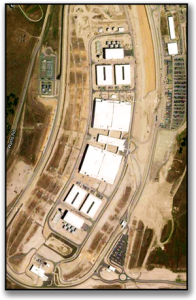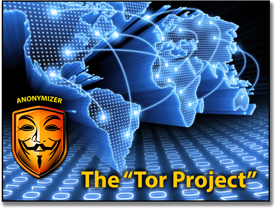Disappearing Privacy in the U.S.
 Why is it that the government gets their panties in a bunch every time an advocacy group questions their transparency but they want the general populous as transparent to them as possible? I find it very troubling that they (the government and congress) must hide everything that they do as our representatives, but everything the American Citizen does must be known to them no matter how minor. The U.S. government is bringing online an NSA program they like to call “Total Information Awareness” system (TIA). The TIA incorporates an advanced framework of “Data Mining” algorithms that allow government officials to access our personal information. This data includes, but is not limited to web searches, emails, phone calls, financial records, medical records, educational records, social associations, security video, and more. All this information could be compiled on any company or individual allowing a detailed profile on that company or person. If used with the new, and effective facial recognition, and license plate software in use by law enforcement authorities, they could effectively cause political changes to take place in our government through manipulation of information, and selective leaks to the media. They could be the absolute puppet-master and we would be the minion puppets.
Why is it that the government gets their panties in a bunch every time an advocacy group questions their transparency but they want the general populous as transparent to them as possible? I find it very troubling that they (the government and congress) must hide everything that they do as our representatives, but everything the American Citizen does must be known to them no matter how minor. The U.S. government is bringing online an NSA program they like to call “Total Information Awareness” system (TIA). The TIA incorporates an advanced framework of “Data Mining” algorithms that allow government officials to access our personal information. This data includes, but is not limited to web searches, emails, phone calls, financial records, medical records, educational records, social associations, security video, and more. All this information could be compiled on any company or individual allowing a detailed profile on that company or person. If used with the new, and effective facial recognition, and license plate software in use by law enforcement authorities, they could effectively cause political changes to take place in our government through manipulation of information, and selective leaks to the media. They could be the absolute puppet-master and we would be the minion puppets.
Most of this type of data is called “Big Data” and requires a vast storage facility to allow for the manipulation of it. In addition it requires multiple “Super Computers” to actually analyze and quantify the data being harvested by them. This facility has been built in Bluffdale, Utah and is called the “Utah Data Center”, but it is officially called the “Intelligence Community Comprehensive National Cybersecurity Initiative Data Center”. It is approximately 1,000,000 square feet total with about 100,000 square feet just for data storage area. The cost for the facility is about $6 billion dollars. The tarfeathers.com administrator “Cb4life” stated in one of his comments that he wondered where Hillary Clinton lost $6 billion dollars at. This might be it. Its stated purpose is to support the “Comprehensive National Cybersecurity Initiative” (CNCI).The Data Center has a 35,000 square foot power substation facility to supply power to it when on the power grid. The facility incorporates 12 cooling towers, 2 massive fuel tanks, 2 water towers, 4 huge power generation buildings, 2 massive chiller plants, and an administration building that occupies a small footprint near the center. It also has a very small visitors facility to passify the curious. It can operate for long periods of time when off the grid on its fuel reserves. To put it bluntly,… this is a huge, self-contained data collection facility! Big Brother has been born. He’s in Utah.
Recently a man in Nevada wanted to get a copy of his children’s school records because the State Board of Education was incorporating all school records into a multi-state consortium that shares students’ data. He wanted the copies in order to see what they were collecting on his children. The School Board said it would cost him $10,000 to get the copies!? Why? Does it cost the school that much to access students records? If it does their system is completely innefficient, and is absurd! No, what they are doing is abusing their power. This is why I have a problem with big data mining, and vanishing personal privacy. Similar to the Nevada Board of Education there is always an abuse of power when government is left unchecked and to its own devices. Most government employees are overpaid, and under-supervised. The exception to the rule is our military,… they are over-supervised and underpaid (but they do have cool toys). I know from personal experience.
I don’t want anyone reading this to get the wrong idea here. I am a believer in national security, and I am a stone-cold patriot with awards to prove it. I believe we need a comprehensive, global intelligence collecting data center to protect us from those that would love nothing better than to annihilate us and our way of life. I’m onboard with killing those killers who desperately deserve it! We also need balance. We need to be able to expect, or at least have a reasonable expectation, that we have privacy. Let’s face it, real privacy is a thing of the past, but “observable legal privacy” in our religious, political, social, educational, employment, and legal affairs should be an inalienable right even if facts about this information are known to the government. They should never be allowed to use them against us personally, or as a people to manipulate the masses. National defense should be the only reason to compile this information against companies, or persons suspected of treason, insurrection, cyber assault, or armed assault. Oversight by an authority that is truly loyal to the citizens of the U.S. should be incorporated here. Congress cannot be trusted. They are all self-centered, self-inflating, self-rationalizing “sell-outs”. They are the ones that need to be watched, just look at Roman history. No, it must be an entity that cannot be bought out by big money; an entity that doesn’t need to look at the collected data to protect the citizen or company from its exposure. I believe an “Independent Citizens Rights Commission” with full legal authority to impose legal protections for our citizens is what is needed here.
This is “Post One” of a two part blog post. “Post Two” (The Tor Project: Online Anonymity) addresses steps that we, as citizens can take to protect our families and selves against the growing trend of disappearing privacy. These steps are effective and are very secure against all tracking and net-presence with only a few exceptions.


